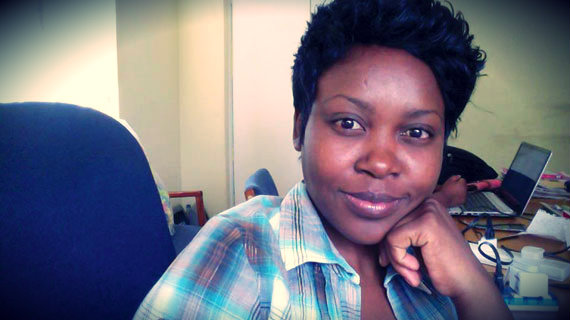
SOMETIMES I wish there were cyber-police patrolling the Internet so they could welcome each user by stating, “you have the right to log on; anything you post, tweet, share, like, retweet and comment on can and will be used against you in a court of public opinion”.
Delta Milayo Ndou
I always wonder why so many people publicly post inappropriate things on their social networking sites and then expect that their content would be treated as “private” or expect that as soon as they log off they should no longer be held accountable for anything they posted.
It is odd that some people don’t expect to be judged by the things they post online because for some unfathomable reason, they don’t consider the virtual cyberspace world to be altogether “real” or as real as the world offline. Someone once mentioned a campaign on social media and good digital citizenship that ran on a theme titled “you are what you post”.
While it is true that many people tend to exaggerate their good fortune online, striving to keep up appearances and bragging about imagined successes or simply creating a whole new false persona as some form of escapism, there is a point at which what you post online can be used against you offline.
This is because whether offline or online, our actions have consequences.
I often equate a Facebook status with a poster pasted on the wall of a public place. I figure that if you don’t want anyone and everyone to read it, don’t post it publicly without filtering which audience you’re targeting.
There’s a reason why privacy settings exist on social networking platforms. You can protect your tweets on Twitter and you can modify the Facebook settings of each and every post to filter who can or cannot access your content, so don’t cry foul when the unintended audience accesses and abuses your posts.
- Chamisa under fire over US$120K donation
- Mavhunga puts DeMbare into Chibuku quarterfinals
- Pension funds bet on Cabora Bassa oilfields
- Councils defy govt fire tender directive
Keep Reading
Everyone knows how to close their curtains because they know that if they don’t they will be exposed to the eyes of people they don’t want viewing them.
Similarly, what you post online is exposed to all and sundry unless you take deliberate measures to secure your posts.
Perhaps as a rule of thumb (and not to curtail anyone’s enjoyment of their freedom of expression) if what you have to say is not meant for public consumption, don’t use a public platform to express it.
I have often heard people complain about journalists who would have picked up their content from social networking sites and then go on to write stories where they quote the views of those persons as expressed through their Facebook posts or tweets.
Should journalists do that? Is it ethical? Is it right? Is it fair?
Attempting to answer those four questions is entering a minefield that I could not possibly traverse within the limited scope of this article, but I will point out that journalists should be able to source story ideas anywhere and the public spaces are often the ideal places to do this.
The contentious issue of journalists randomly picking user-generated content online and turning it into fodder for their stories, thereby distributing said content to a broader and largely unintended audience, leads to questions around ethics and whether we need the permission of a potential subject to write a story about them or about what they said or posted online.
I think most people who post their thoughts or photos or share content on their social networking sites do so because the intended audience they want to address is online.
If they wanted their thoughts to be consumed by offline audiences and if they wanted their views to be disseminated through other forms of media, they would have written a letter to the editor or sent their photos for publication.
Content that is posted publicly easily becomes fair game for those who want to distribute it regardless of how the creator of that content may feel.
When people post content publicly, it becomes difficult to retain an expectation of having that content regarded as “private” by journalists or any other person who stumbles upon it because what is expressed in the public domain online or offline cannot be regarded as a private utterance.
Yes, your Facebook profile is a private or personal platform, but the content you disseminate publicly becomes accessible to everyone.
It is unreasonable to expect privacy when you engage in an activity within the public domain. If you do want to engage in an activity online and want it to be private insofar as restricting the audience who can access or view it, use privacy settings.
Logging on and then proceeding to behave irresponsibly or recklessly online through inappropriate remarks, comments, posts, shares or tweets, or retweets, or Facebook likes and then expecting to just log off unscathed is rather naïve.
I have found that those who do tend to be reckless and malicious and even promote hate speech or encourage trolling, are people who will have created fake profiles and can anonymously engage in unbecoming cyber conduct.
Some people have been known to lose their jobs over a Facebook post or a reckless tweet because they were just exercising their freedom of expression using their personal social networking platform and unreasonably expecting that their views online would be treated as “private property”.
The long and short of it is one should not have an expectation of privacy when operating in a public space because such an expectation is unreasonable. But that’s just me. And I could be wrong. We can always agree to disagree.
Delta Milayo Ndou is a journalist, writer, activist and blogger










